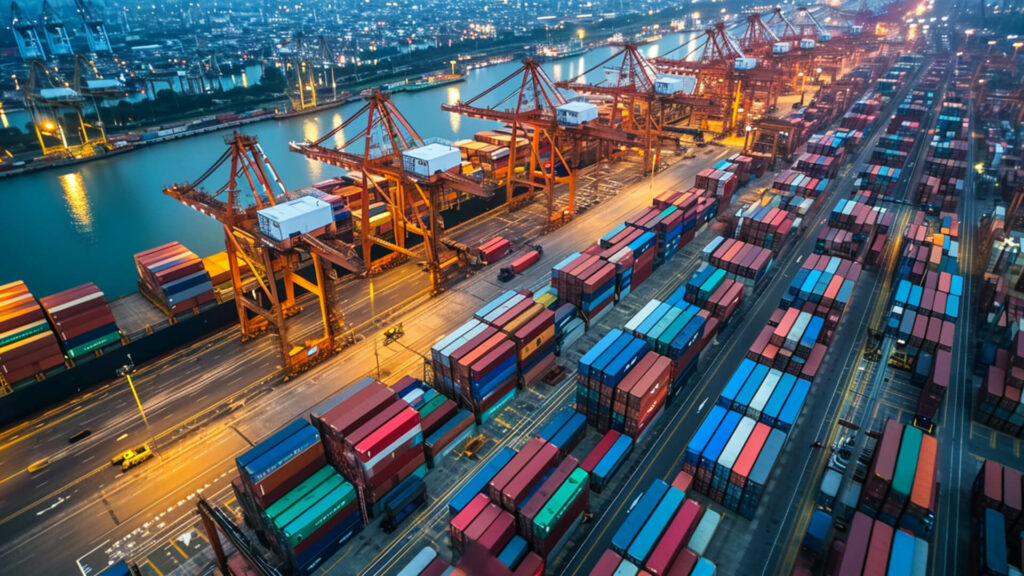‘Delivered at Place Unloaded’ or DPU Incoterms represent a significant development in international trade terms under the Incoterms 2020 framework. This unique term reshapes the division of responsibilities and risks between buyers and sellers in global trade, making it a vital concept for export-oriented companies like John Pipe International.
Understanding Seller’s Responsibilities
The seller’s responsibilities under DPU Incoterms are extensive and critical for the smooth execution of international trade deals. They encompass a range of duties from the point of dispatch to the point of unloading at the destination. This includes managing export packing, loading, transportation, and crucially, unloading the goods at the agreed destination. The seller must also handle export formalities, including duties and taxes, and bear all associated risks until the goods are safely unloaded. This level of responsibility necessitates meticulous planning, coordination with various logistics partners, and a comprehensive understanding of both export and transport regulations to ensure compliance and minimise risks.
The Comprehensive Role of the Seller
Under DPU, the seller is responsible for the entire journey of the goods, including export packing, loading, transport, and crucially, unloading at the destination. This responsibility demands detailed planning and risk management.
Buyer’s Role and Responsibilities
In the DPU Incoterm framework, the buyer’s role activates primarily after the goods have been unloaded at the designated location. Their responsibilities include the prompt collection of goods, managing import formalities, and paying the necessary duties and taxes. The buyer must also ensure that they are prepared to receive the goods at the agreed location, which may involve coordinating with local transport services for further distribution. Crucially, once the goods are unloaded, all risks associated with their loss or damage transfer to the buyer, emphasising the need for efficient and timely collection and handling processes. This responsibility extends to covering any additional costs incurred due to delays or failure to accept the goods on the agreed date.
Post-Unloading Duties of the Buyer
The buyer’s responsibilities begin once the goods are unloaded. They must manage import procedures and taxes, and quickly collect the goods, as the risk transfers to them post-unloading.
Advantages of DPU Incoterms
DPU Incoterms offer several advantages that can enhance the efficiency and clarity of international trade transactions. For sellers, it allows control over the entire transportation and unloading process, leading to potentially better logistics management and cost savings. This control can also result in safer and more efficient unloading practices. For buyers, the primary benefit lies in the clear demarcation of responsibilities, as they only take over after unloading. This clarity simplifies their planning process and mitigates risks, as they are not responsible for any damage or loss until the goods are unloaded. Moreover, buyers enjoy transparent costing, as they are not liable for transport or unloading charges, leading to better budgeting and financial planning for their imports.
Benefits for Sellers and Buyers
DPU offers distinct benefits, such as control over unloading for sellers and simplified collection processes for buyers. This term provides clarity in costs and risk management, making it an attractive option for many transactions.
The Importance of Incoterm Selection
Selecting the right Incoterm is a crucial decision in international trade, impacting various aspects of a transaction. The choice of Incoterm directly influences the allocation of costs, risks, and responsibilities between the buyer and seller. It affects logistical arrangements, insurance requirements, and customs clearance processes. A well-chosen Incoterm aligns with the specific needs of the trade agreement, ensuring that both parties have a clear understanding of their obligations, thereby reducing the potential for disputes. It also enables businesses to manage their resources efficiently, optimise cost structures, and mitigate risks, contributing to smoother and more predictable trade operations.
Aligning Incoterms with Business Strategy
Choosing the right Incoterm is crucial for aligning with business strategies and effectively managing risks and costs. DPU is a suitable option for many trade scenarios but requires careful consideration of transaction specifics.
DPU vs. Other Group D Incoterms
Comparing DPU with other Group D Incoterms like DDP (Delivered Duty Paid) and DAP (Delivered at Place) reveals key distinctions. In DDP, the seller assumes greater responsibility, including export and import clearances, and pays all duties and taxes. In contrast, under DPU, the seller’s responsibilities end post-unloading, with the buyer handling import formalities. DAP, similar to DPU, places the onus of unloading on the buyer, unlike DPU where the seller is responsible. These differences highlight the importance of understanding each Incoterm’s specificities to choose the most suitable one for a given international trade scenario, based on the nature of goods, logistical capabilities, and preferences of the trading parties.
Comparing DPU with DDP and DAP
DPU differs from DDP and DAP in terms of customs responsibilities, delivery points, and the level of commitment required from the seller. These differences highlight the need for a thorough understanding of each term.
Conclusion
Mastering DPU Incoterms is essential for successful international trade. They offer a balanced approach to risk and cost management, enhancing operational efficiency and customer satisfaction in global trade.
FAQs
Q: What does the Incoterm DPU mean for international shipping?
A: The Incoterm DPU (Delivered at Place Unloaded) means that the seller delivers the goods, and transfers risk to the buyer, once the goods are unloaded at the agreed-upon destination. This term places maximum obligation on the seller.
Q: How does DPU Incoterm affect the responsibilities of the buyer and seller?
A: Under DPU Incoterm, the seller is responsible for transportation costs, export duties, and risks until the goods are unloaded at the destination. The buyer takes over from the point of unloading.
Q: What should I consider when using DPU shipping for my international transactions?
A: When using DPU shipping, consider the unloading location’s accessibility, potential additional costs for the buyer upon unloading, and customs clearance procedures.

